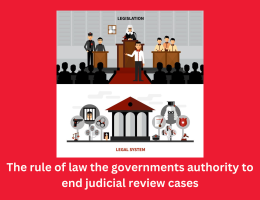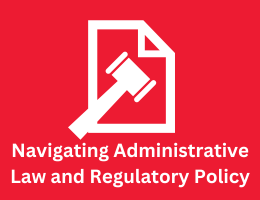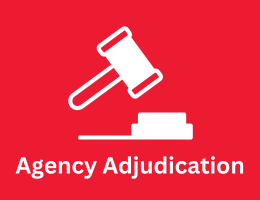
Administrative Agencies and Their Powers
- By admin --
- Thursday, 07 Mar, 2024
Administrative companies are critical to contemporary authorities due to the fact they have got sizeable energy over many aspects of public administration. Gaining an knowledge of the composition, obligations, and authority of these companies is crucial to comprehending the workings of administrative law. This essay explores the complexities of administrative organizations, along with their energy to enact laws, put into effect regulations, and settle conflicts.
Structure of Administrative Agencies
While sure administrative corporations may be unbiased or almost unbiased companies, most administrative organizations are part of the govt arm of government. They are charged with sporting out and dealing with unique laws or government guidelines and are hooked up through statute or government order. Agencies have quite a number capabilities, from provider transport to regulatory monitoring, and range in terms of size, authority, and scope.
Offices and group of workers are frequently arranged hierarchically in administrative organisation structures. Typically, a governing body, the sort of board of administrators or commissioners, sits on the pinnacle and is in price of setting up business enterprise operations and policy goals. Executive leadership roles, consisting of directors or business enterprise heads, oversee day by day operations and uphold policies beneath the governing frame. Agencies may have departments or divisions with specialized attention on specific administrative or regulatory fields.
Functions of Administrative Agencies
Administrative corporations carry out a huge variety of obligations to satisfy legal necessities and in addition the targets of public policy. These responsibilities can be kind of divided into 3 categories: adjudication, enforcement, and rulemaking.
- Rulemaking: The system of organising rules with legal impact is one of the most important responsibilities of administrative bodies. Rules can be issued by means of agencies to deal with new troubles inside their purview, set standards, or interpret statutory necessities. A formal manner, comprising notice and comment periods to accumulate comments from interested events and the overall public, is normally blanketed in rulemaking.
- Enforcement: Within their jurisdiction, administrative businesses are in rate of upholding the law and policies. This enforcement electricity may be used to perform investigations, trouble fines or tickets, and take criminal movement against infringers. Organizations frequently hire specialized enforcement groups or employees whose job it's far to keep an eye on compliance and cope with regulatory requirement infractions.
- Adjudication: In quasi-judicial techniques, administrative corporations additionally characteristic as adjudicative bodies, settling conflicts and putting administrative law standards to use. In the adjudication system, rights and duties touching on occasions that the organisation manages are determined via administrative trials, hearings, or informal dispute decision tactics. Administrative regulation judges or listening officials assist in presiding over those court docket matters, making decisions primarily based on the evidence supplied.
Powers of Administrative Agencies
Legislative delegations or statutes offer upon administrative entities a variety of powers. These government permit agencies to efficiently carry out their duties and meet their regulatory duties. Among administrative companies' major authorities are:
- Rulemaking Authority: Administrative bodies has the capability to issue legally binding regulations and guidelines. With the usage of this authority, companies are able to meet changing regulatory difficulties, make criminal requirements clear, and near any gaps created through indistinct or expansive statutory provisions.
- Investigative Powers: In order to get proof of viable criminal or regulatory infractions, administrative bodies are able to carry out investigations. The capability to summon witnesses, name for the manufacturing of documents, and get get proper of entry to to places or documents which are pertinent to the research are a few examples of this investigative authority.
- Enforcement Authority: Administrative government have the proper to apply a number of tools, consisting of fines, sanctions, or corrective movements, to make sure that felony guidelines and policies are determined.An company may also have the internal authority to trouble directives, fines, or penalties which will prevent you from conducting unlawful sports.
- Adjudicative Authority: Administrative government has the strength to make choices and determine instances using quasi-judicial methods. Organisations can interpret rules, resolve disputes with events, and clear up disputed instances by means of the use of administrative regulation concepts and challenged dependency decisions.
- Discretionary Powers: When putting laws or rules below their purview into impact and upholding them, administrative agencies frequently use their discretion. Agencies are capable of prioritize enforcement sports, alter policies to precise situations, and make insurance picks that align with legislative dreams due to the fact to this discretionary capacity.
Conclusion
Administrative companies maintain enormous energy in a number of regions of management and are critical in the improvement and execution of public coverage. Navigating the intricacies of administrative law calls for an know-how of the composition, duties, and authority of those our bodies. Stakeholders can gain a higher information of the function of administrative regulation in modern-day governance and the connection between government agencies and the public by using looking at the authority of administrative businesses to enact laws, enforce policies and rules, and settle disputes.





